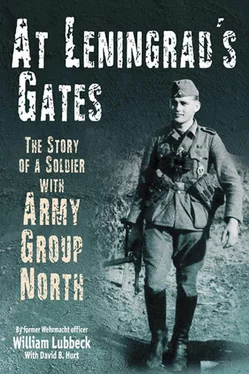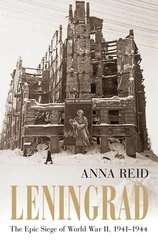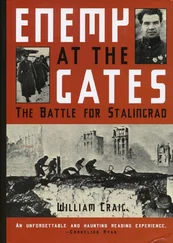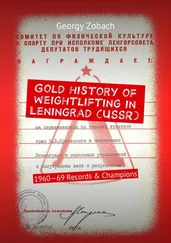Two days after the disaster at Fischhausen, I was able to present an Iron Cross First Class and several Iron Crosses Second Class, but it simply proved impossible for me to oversee their reassignment in the prevailing chaos. In the end, I had to leave my men to report to the 32nd Division on their own, like lost sheep in a storm.
Unless they were killed in the final days of the war, they almost certainly became Soviet prisoners of war. If they were strong and lucky, they perhaps endured the ensuing three or four years of captivity in Russia to return home to Germany. Even now, sixty years later, the thought of their suffering and the uncertainty of their fate deeply torments me.
A DESPERATE JOURNEY: April 18–May 8, 1945
Under sporadic fire from Soviet artillery, Jüchter and I left the bunker late in the afternoon of April 18 and set out down the main road toward the city of Pillau, located about six miles away. If we were able to reach the harbor there, we hoped to cross over the short span of water that separated Pillau from the northernmost tip of the Frische Isthmus.
Approaching the city as dusk fell perhaps three hours later, a gruesome scene greeted us. Along the road, a dozen or so bodies of German soldiers hung down from the branches of tall trees. Jüchter and I remained silent, but it was apparent that this was the grisly handiwork of the SS. Whether the men were deserters or simply soldiers who had been separated from their units or in shell shock would have made no difference to them.
Most German troops with whom I had fought perceived the Waffen SS (the military formations of the Schutzstaffeln) to be, in essence, part of the Wehrmacht, but disdained the regular SS, which was seen as a thuggish Nazi political militia. With the Nazi regime facing its end, it was not surprising that the SS would string up any of those they judged to be traitors as a warning to others. Witnessing their crude “justice,” I hated them.
As we made our way through Pillau in the lingering twilight, the intensity of the shelling grew heavier as the Russians concentrated their fire on the sector’s one remaining major target. Whenever there was a momentary lull, Jüchter and I left our cover and raced to the next ruined building, always remaining alert for the next incoming rounds so as to avoid being caught out in the open.
When we arrived at the inlet on the west side of town a few hours later, there was already a growing throng of hundreds of troops and civilian refugees gathered at the dock. Despite the chaos, one or two ferries continued to carry passengers and a few vehicles across the 200 yards of water that separated Pillau from the start of the Frische Isthmus. There was nothing for us to do but wait our turn under continuing intermittent artillery fire.
It was dark a half hour later when Jüchter and I squeezed onto a ferry with perhaps 100 soldiers, refugees, and a variety of trucks and other military equipment. As soon as the boat docked on the far shore ten minutes later, we joined a couple of dozen other soldiers cramming onto one of the trucks just ferried across the channel.
As shells still occasionally dropped around us, our truck joined the impromptu convoy departing westward down the Frische Isthmus. The column proceeded slowly through the darkness, driving without headlights in order to avoid attracting the attention of any Russian aircraft that might be lurking above.
A few hours into the trip, we passed a group of burning buildings. Since there was no artillery fire or bombing in the area, this seemed very odd to me. Turning to the soldier seated next to me on the truck, I asked what had been there. “Oh, they are probably burning the KZ,” he responded.
My unfamiliarity with the word led him to explain that a “KZ” was a Konzentration Lager (concentration camp) for enemies of the Nazi regime. As incredible as it may seem, it was only at this moment at the end of the war that I became aware of the existence and function of concentration camps.
The revelation left me bewildered, though I still did not connect such camps to a Nazi policy of genocide. My ignorance of the system of concentration camps during the war matched that of most other Germans. Actual photos of the camps were not seen by any public, German or Allied, until after the war.
In his fascinating memoir Europa, Europa (John Wiley & Sons, 1997), Solomon Perel, a boy who kept his Jewish identity secret throughout his years at a Hitler Youth school in Germany, related a similar astonishment when he first learned about the Nazi death camps after hostilities had ended.
The ability of Hitler’s regime to keep this massive atrocity a secret from the population demonstrates their effectiveness in controlling information that would have jeopardized their support. Like most Germans, I felt bitterly betrayed when I eventually learned that Nazi leaders had directed the execution of millions of Jews, Gypsies, and other prisoners in these camps. That was not the cause for which I had fought and for which so many of my comrades had sacrificed their lives.
Just before dawn, our ad hoc convoy reached Stutthof, an assembly point for the troops who had made the 35-mile journey from Pillau. We spent the rest of the day under cover before renewing our journey northwestward by sea. Boarding a ferry that night, Jüchter and I crossed the Gulf of Danzig to Hela, a port located on the end of a long peninsula about 20 miles from Stutthof.
Disembarking at Hela, we took refuge in a block of three-story brick apartment buildings which had been deserted by their owners. Exhausted after months of combat and our long trek, we fell into a deep slumber.
While we were unaware of it at the time, the disaster at Fischhausen had occurred on the same day that the Red Army had commenced its final assault on Berlin far to the west of us. This offensive made the whole Baltic coast a relative backwater in the larger war, though Hela’s geographical isolation probably also served to deter the Russians from trying to occupy it. In any case, they appeared content to keep hammering us with artillery fire from the area around Gdingen, a town and harbor about ten miles away on the Soviet-occupied mainland.
Finally out of combat, I thought almost constantly of my fiancée Anneliese, whom I had met six years earlier, a few months before being drafted into the military. Though several months had passed since we had last corresponded, my love for her remained my lone source of hope in the otherwise dark and uncertain future that lay ahead. In my heart, I felt sure that we would be together for the rest of our lives, if I could somehow evade the Russians and reach Germany.
Throughout the days that followed, we did little more than rest and try to scrounge up something to eat. One afternoon, I caught sight of Lt. Colonel Ebeling and a group of staff officers from the 154th Regiment off in the distance, but did not speak to them. Though we were all seeking to find our way back to Germany under orders, it was clear that the Wehrmacht was in the process of disintegrating. Everyone was now basically on their own.
During this period we received word of two of the worst maritime disasters in history. In back-to-back tragedies in January and February of 1945, the German liners Wilhelm Gustloff and General von Steuben had been torpedoed and sunk by the Russians while evacuating thousands of civilian refugees and wounded personnel from East Prussia back to central Germany. Despite all we had endured at the front, this news further deepened the overpowering sense of grief and despair among us.
Even if it was possible to find space on one of the few vessels departing Hela, the threat of Soviet naval attack made the prospect of reaching Germany appear more remote than ever. At the same time, most of the officers on the Hela Peninsula were not even making a serious effort to leave, regardless of their orders to return to Germany. A lingering sense of honor and a bond of solidarity among us created a kind of inertia. In spite of the general breakdown in military order, none of us wished to give the appearance of deserting our comrades by departing before they did, even if it served no purpose for us to remain where we were.
Читать дальше












